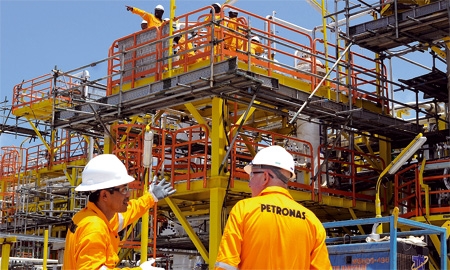The “resource curse” suffered by numerous developing countries has showed us this lesson time and again. Countries like Malaysia, on the other hand, who succeed at organisation and strategic long-term planning, foster lasting prosperity and broad-based growth and development, making the most out of the resources they possess.
“We currently rank as an ‘upper-middle income’ nation,” says Johan Mahmood Merican, CEO of TalentCorp. “A key part of reaching this current state is not just our physical infrastructure but also our human capital infrastructure.”
Founded in 2011 by the office of the Prime Minister, TalentCorp collaborates with relevant government agencies and employers in priority economic sectors, chief among them oil and gas, to achieve three strategic thrusts: Optimise Malaysian talent, attract and facilitate global talent, and build networks of top talent.
“The government has consistently invested in human capital,” Mr Merican adds. “Education and human capital are the largest components of our annual allocation, it is more than 20 per cent of our federal government’s budget and it has been at that level constantly.”
The government has made attracting, recruiting and retaining top talent a national priority. “As the country steadily progresses in an effort to achieve the developed-nation status, there will be some additional requirements in certain key sectors of the economy,” says Datuk Sri Abdul Wahid Omar, Minister in the Prime Minister’s Office. “This is the case of the oil and gas sector, as we move downstream into some of the high-tech processing of petrochemicals we will need more talent to come back to apply the strategies required.”
This commitment to developing top-notch professionals has had measurable payoffs. “Education is definitely one of the key focus areas, as we believe that this is a long-term solution to growth and progress,” explains Tan Sri Dato’ Shamsul Azhar Abbas, President and Group CEO of Petronas. “I think we have a role to play to ensure that the oil and gas industry is deemed attractive to new talent. Given the intensity and risk level involved in the oil and gas industry, I believe that the human capital and skilled workforce must progress in line with the industry and be more strategic and collaborative in its scope.”
Under the leadership of Mr Azhar Abbas, Petronas has built up a highly skilled workforce. “Our people are equipped with the capability and technical know-how not just in traditional extraction methods but also in new areas,” he continues. “We have expanded our investment in research and development to develop advanced technologies. Yet, all the technologies in the world are worth naught without skilled workers to maintain and operate them.”
This is why the company has implemented innovative human development initiatives that incorporate the best practices from leading oil companies worldwide. “Comprehensive technical training benefits both nation and industry,” Mr Azhar Abbas emphasises. “We are also aggressively accelerating our global talent development through tie ups with leading industry and technology players – we partnered with Petrofac, a British company, for the INSTEP Integrated Oil and Gas Training Centre (IIOGTC) as well as various scale collaborations with Halliburton, Shell, Schlumberger, Mitsubishi and Technip under the umbrella of Universiti Teknologi Petronas.”
INSTEP trains 69,000 operators all over the world, while the IIOGTC is a full size simulator that covers the whole supply chain, upstream and downstream. “It is one and only in the world in terms of its scale and complexity. Now we receive applications from all around the world by companies that want their personnel to be trained at INSTEP,” the Petronas chief says.
“The idea is to create centres of excellence involving global talent for the benefit of the industry at large,” he concludes. “Not just focusing on Malaysia or Petronas alone.”

0 COMMENTS